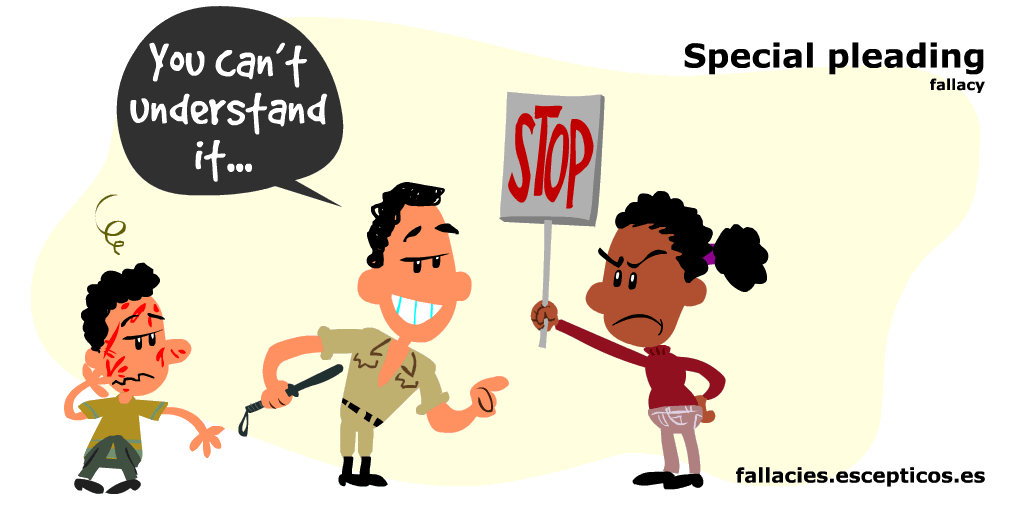You will never understand THAT, since only the chosen ones can.
Source, wikipedia
This fallacy happens when someone, while arguing, incurs in or alludes to some sort of special vision or sensibility on the debating subject and, implicitly or explicitly, this person claims the opponent couldn’t possibly know the subtleness or complexity of the matter, since they can’t reach the required level of knowledge or empathy. Behind that special pleading or expectation of a deep vision or empathy there’s an assumption that the opinions of the claimer are not able to be evaluated by the opponent, since they lack the capacity to make a valid judgement. All of these pleadings must be treated with deep skepticism.
Examples
-Carl Sagan: “How could the rising of Mars at the moment of my birth affect me, then or now? I was born in a closed room. Light from Mars couldn’t get in. The only influence of Mars which could affect me was its gravity. But the gravitational pull of the obstetrician was much larger than the gravitational influence of Mars. Mars is a lot more massive, but the obstetrician was much closer.”
-Special pleading: “horoscopes work, but you need to understand the mechanics behind them”.
-Homeopathy should be tested in clinical trials.
-Special pleading: “Clinical trials aren’t adequate to test the true nature of homeopathy”, or even an ad hominem fallacy: “you’re not a qualified homeopathist, hence you can’t possibly understand it”.
To refute it
This fallacy is generally used to reply to a really specific argument for which there’s no right answer; replying by relocating the attention focus on a concrete detail, and demanding specific arguments to refute it, also pointing to the lack of relationship between imposed condition and being right or not.
Cuando no se cita el origen, la definición y ejemplos están extraídos de una traducción de Jaime Wilson [email protected] a partir de: Stephen’s Guide to the Logical Fallacies. Copyright 1995-1998 Stephen Downes. Brandon, Manitoba, Canada.
Esos textos fueron retocados por Miguel A. Lerma, y ahora por nosotros, además de los procedentes de la Wikipedia, para adaptarlos a nuestro formato.
